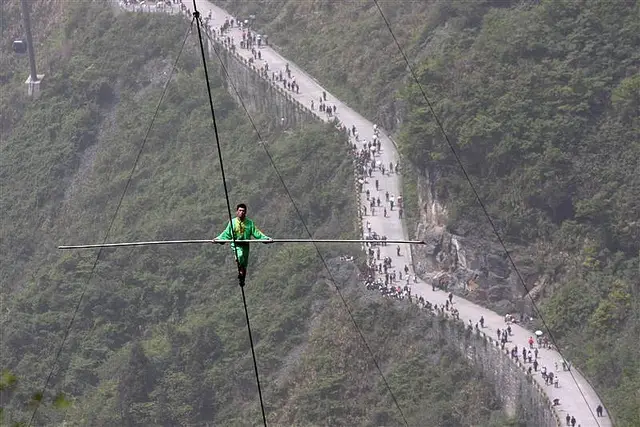Jonathan Dodd’s latest column. Guest opinion articles do not necessarily reflect the views of the publication. Ed
Back in the day, when I was a student, I had a friend called Jimmy, who came from Liverpool. In those days I didn’t know much about the place, apart from the Beatles connection. By this time the Beatles hadn’t lived up there for years. Even when they finally became famous it was on the back of several years grinding away in the clubs of Hamburg, and they seemed to fit into the scene of ‘Swinging London’ as naturally as jam in a sandwich.
Jimmy was small, with a fierce accent and eyes that looked for challenges everywhere. He never seemed able to relax or stop moving. He was growing a very unsuccessful moustache, and his one attempt at long hair just didn’t work. It looked like someone had stuck a mop head into a bucketful of sticky stuff, and it had dried all spiky and sticking out in every direction. I believe he took some scissors to it himself, and the terrible results were less startling and suited his manic energy better.
Interesting ways of enjoying oneself at parties
Jimmy could almost have been a cliche of the Liverpudlian that’s now familiar to all of us since Harry Enfield, but nobody knew enough about anything in those days to be bothered by that. When I look back, it seems as if all my friends at that time were cliches. I haven’t kept in touch, and I assume they would be as oblivious to me as I would be to them now. Perhaps we’ve all become the cliche of the late-middle-aged white male. Or female.
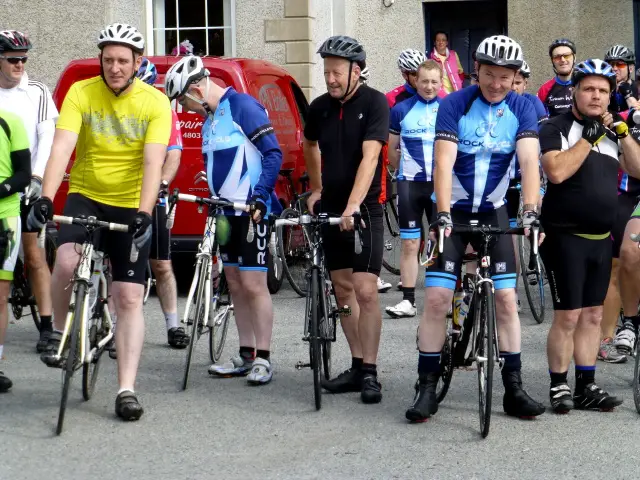
Back to Jimmy. He had one totally unexpected and extraordinary talent which he only performed at parties, after a few drinks. Alcohol was less popular then, mainly because it was the fashion to choose other interesting ways of enjoying oneself at parties, and everyone tended to become more relaxed as the evening went on, apart from Jimmy, who became even more animated.
He always managed to make it across the room
At a certain moment, when there was a space in the room, Jimmy would do his tightrope walk. You probably had to be there, so you’ll have to take my word for it. With a look of fierce concentration on his face, Jimmy would cross the room as if on a very thin rope over a deep and dangerous chasm. Some steps would be confident and balanced, and some would be wild and panicky, with lots of arm-waving and frantic attempts to balance. But somehow he always managed to make it across the room and brought back another beer for himself.
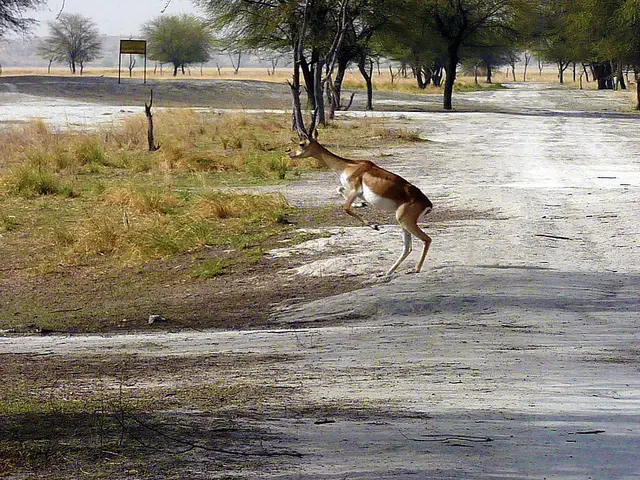
It was mesmerizing. He had such a talent for this performance that everything simply stopped, and we watched with our hearts in our mouths, not daring to breathe, and we all felt ourselves sucked to the edges of the room, as if avoiding that same chasm that Jimmy was so bravely and skillfully crossing.
Nothing short of mind-blowing
Jimmy never expected any applause. It was just something he did. He would come back, already swigging his fresh beer, and there would be a cocky smile on his face. He would seem more relaxed, actually looking people in the eye, which he seldom did at any other time. And if we were very lucky, he would treat us later on to his ski-jump routine, which was nothing short of mind-blowing.
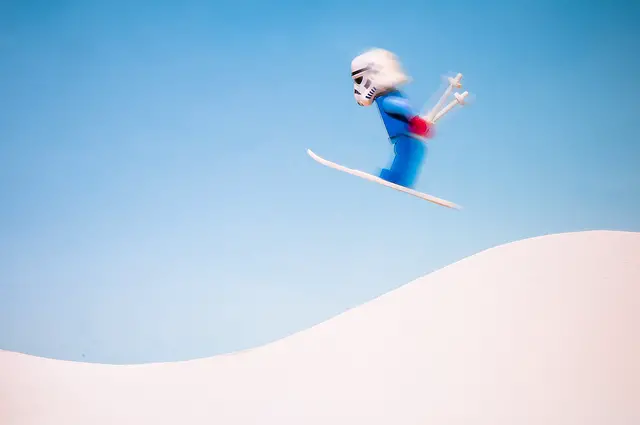
I was thinking about this the other day, and I was struck by the idea of the tightrope walk on a flat surface. How do we know that the surface we’re on is actually flat and solid? Haven’t we all experienced that horrible lurch at some time when the floor just whips itself away from beneath us and we’re suddenly in free-fall?
Whisking a tablecloth away
I remember a few times in my life when I was asleep, waking suddenly with the sensation of falling, as if the bed had gone so fast that the transition from being on the bed and having no bed under me was instantaneous. 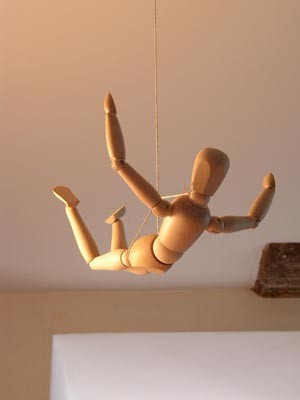 It’s like that trick my brother once showed me, of whisking a tablecloth away and leaving everything undisturbed on the table. Except it’s like whisking away the table as well as the tablecloth.
It’s like that trick my brother once showed me, of whisking a tablecloth away and leaving everything undisturbed on the table. Except it’s like whisking away the table as well as the tablecloth.
I have had moments, and I’m sure most of you (provided there’s more than one person reading this of course) have had similar ones, where the whole apparatus and structure of my life just seems to have been whipped away like that table. It’s not just frightening, it’s actually heart-stoppingly terrifying.
Feel secure on our feet again
But the wonder of it is that we manage to survive these moments, and we even rebuild that floor so we can feel secure on our feet again. And we don’t exactly forget, but we get on with our lives, and our confidence reassembles itself.
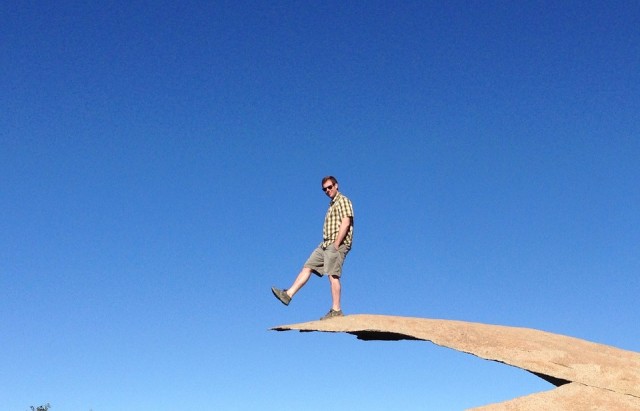
Some people forget that they had such an episode. Others remember only too well, and never recover themselves, either wholly or partially. But most of us become so busy again with living that we forget to remember how it felt. Until the next time.
Strength isn’t the only criterion here
I think these moments actually strengthen us, like tempering hot metal by plunging it into cold water. We don’t look different, we don’t feel different, but something’s changed. That which doesn’t kill us makes us stronger. I think Nietsche said that. At least according to Google. And I can’t argue with that. But I do recognize that strength isn’t the only criterion here.

There’s another thing that usually happens after you’ve recovered from the bottom falling out of your world. You become more empathetic, you learn more about the human condition, you’re better able to be a comfort to those you know who are going through the same thing. And you become a beacon of hope for them too. Because you’ve survived the awful thing and you’re still standing.
Bad things only happen to people who don’t take care
People who are naturally empathetic are remarkable. For most of us it requires bad experiences to gain the humility that’s required when confronted with others in crisis. I have met people who seem to have had nothing bad happen to them in the whole of their lives. They insist that they’ve achieved this state because of their own diligence and hard work, and that there’s no such thing as bad luck or acts of god. They insist that bad things only happen to people who don’t take care, that’s all.
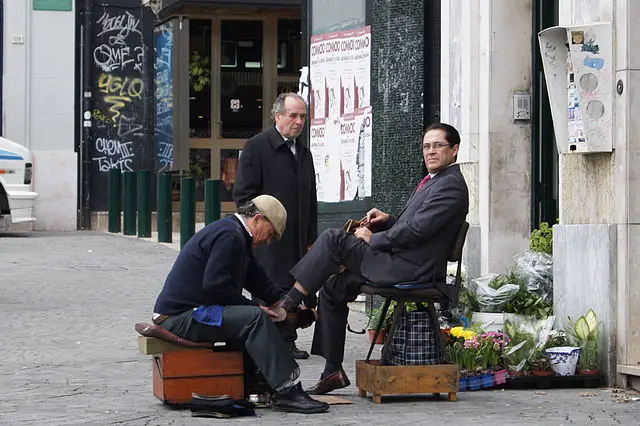
I find this repellent. Life is fragile. Things happen. Some of them are good and some are bad. If we have what appears to be more than our fair share of bad things happen, some of it might well be a result of our own inability to plan or guess the way things might turn out. More often it’s the random drunk driver, the momentary loss of concentration, the freak wave, the failure of a bank, the decision made in good faith, the wrong friend trusted or infected food eaten or bad gene that scuppers us.
At the mercy of random events
It doesn’t have anything to do with who we are or how we live or what colour we are or what religion or country we were born in, or even whether we’re rich or poor, educated or ignorant. These things can skew the odds somewhat in large numbers, but each one of us is at the mercy of random events.

When I think of this stuff it sometimes seems a miracle that so many of us see the fruition of our plans and the survival of our hopes and expectations. We sometimes forget that we’ve been lucky and we get smug. If we’re not careful we end up like Donald Trump, who has been very lucky, and we find we can start blaming whole populations of people to whip up enough fear for the sake of votes and the power that we might think will protect us.
Cover the noise of suffering and inequality
We might think that we can stop refugees at the border and turn the tide of history, or that we can drop enough bombs to cover the noise of suffering and inequality. We probably wouldn’t think the same way if the bombs were falling on us.

This isn’t a student party. Jimmy isn’t going to relieve the tension by pretending to walk the tightrope. The floor may not be as solid as we would like to think. Please tread carefully. And exercise your empathy and humility as much as you can.
If you have been, thank you for reading this.
Image: bethscupham under CC BY 2.0
Image: Kenneth Allen under CC BY 2.0
Image: architratan under CC BY 2.0
Image: kwl under CC BY 2.0
Image: erichrenken under CC BY 2.0
Image: smug under CC BY 2.0
Image: comedynose under CC BY 2.0
Image: Rob Farrow under CC BY 2.0

